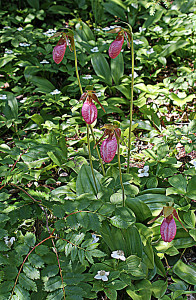
The Importance of How We know What We know
“It is interesting to contemplate a tangled bank, clothed with many plants of many kinds, with birds singing on the bushes, with various insects flitting about, and with worms crawling through the damp earth, and to reflect that these elaborately constructed forms, so different from each other, and dependent upon each other in so complex a manner, have all been produced by laws acting around us. These laws, taken in the largest sense, being Growth with reproduction; Inheritance which is almost implied by reproduction; Variability from the indirect and direct action of the conditions of life, and from use and disuse; a Ratio of Increase so high as to lead to a Struggle for Life, and as a consequence to Natural Selection, entailing Divergence of Character and the Extinction of less improved forms. Thus, from the war of nature, from famine and death, the most exalted object which we are capable of conceiving, namely, the production of the higher animals, directly follows. There is grandeur in this view of life, with its several powers, having been originally breathed by the Creator into a few forms or into one; and that, whilst this planet has gone circling on according to the fixed law of gravity, from so simple a beginning endless forms most beautiful and most wonderful have been, and are being evolved.”
 Darwin’s quote brought to mind a hike we did this Summer. We walked and climbed up the Cascade River that tumbles through myriad waterfalls down sheer granite and Basalt cliffs into Lake Superior. The Spring rains had been plentiful and the river was roaring down its course sending up spray and mist along its banks cooling us as we hiked on a warm sunny day in late June. And all along the Path were arrays of wildflowers tangled together with Ferns, blueberry shrubs, and spruce, fir, and cedar mixed in with the whitebark of Birch trees. The most striking of this beautiful assembly were the dozens of pink Lady slipper ground orchids blooming in the mists from the river.
Darwin’s quote brought to mind a hike we did this Summer. We walked and climbed up the Cascade River that tumbles through myriad waterfalls down sheer granite and Basalt cliffs into Lake Superior. The Spring rains had been plentiful and the river was roaring down its course sending up spray and mist along its banks cooling us as we hiked on a warm sunny day in late June. And all along the Path were arrays of wildflowers tangled together with Ferns, blueberry shrubs, and spruce, fir, and cedar mixed in with the whitebark of Birch trees. The most striking of this beautiful assembly were the dozens of pink Lady slipper ground orchids blooming in the mists from the river.
Reading the Tangled Bank brings this beautiful day back to me. It makes me realize how Nature which I love is made more meaningful by my understanding of how it works. For instance, these orchids live in a relationship with soil microbes that help them absorb nutrients from the acidic soils they tend to grow in. If you try to dig them up and move them to your garden you need to bring those soil microbes along too or your beautiful orchids will wither and die.
As you probably know many people including some of my former science students would take offense at the quote above called The Tangled Bank which is The final paragraph of Darwin’s On the Origin of Species By Means of Natural Selection. We all have our own personal reactions to various information which is often labeled as a part of the “Culture Wars”. I find the paragraph a wonderful combination of poetry and science. I am not surprised that Darwin could write such a beautiful description of his Theory of Natural Selection because his Grandfather Erasmus Darwin was a famous Poet who wrote a best-selling long-form poem that included musings over how the multitude of species on Earth came to be.
On the other hand, many Americans who are members of particular Christian churches would find the paragraph offensive. In response to this reaction in my students, I began to first teach what science is and is not. Then when they learned about the theory of Evolution they already knew what a scientific theory was and how scientists know what they know about Evolution. They also learned that Science is not another religion. Instead, it is a different and important way to learn about the world through understanding rather than belief. Making science less threatening helped smooth the way for their success in my science classes.
Science brings you a particular kind of knowledge. But it does not replace other ways of looking at the world. I know that not all scientists agree with this. I hear some humanists call religion “fairy Tales” but I belong to a faith tradition whose principles emphasize respect for our fellow humans and for their beliefs. And that approach was important in my classroom because children do not learn from a teacher who does not respect them. Their sense of justice is very finely tuned.